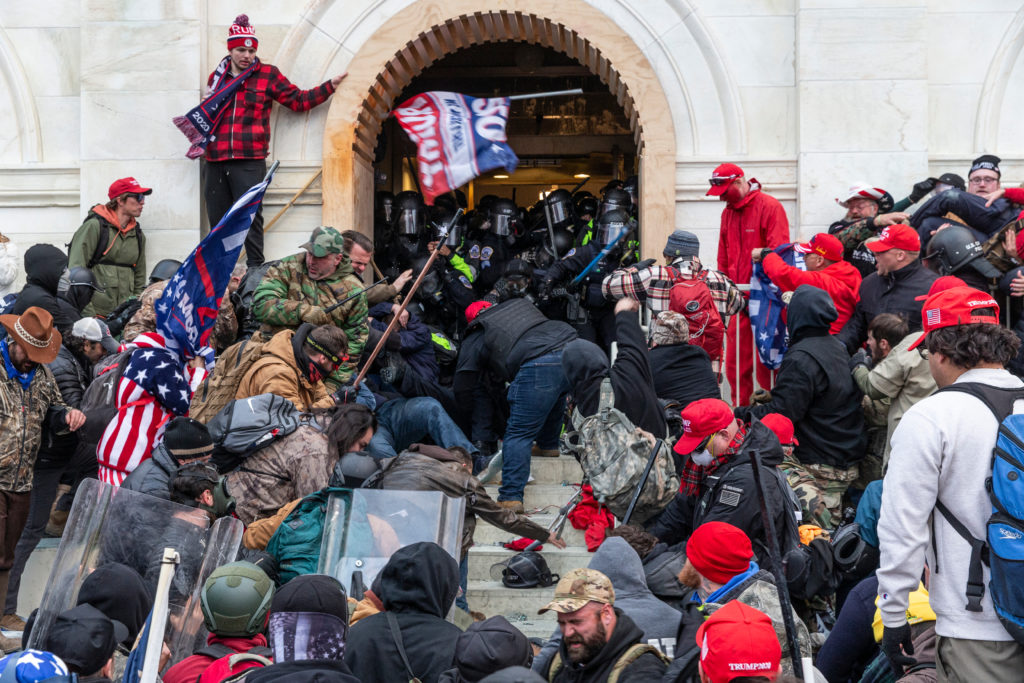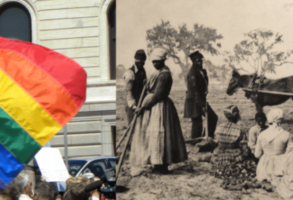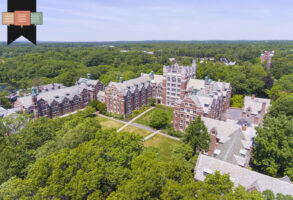
Published February 3, 2022
Claims that American democracy is in crisis seem omnipresent today. In the last few weeks alone, three retired generals warned in a Washington Post op-ed that a military coup might well be possible in 2024 if the right candidate does not win the presidency and social chaos ensues. Any attempt to raise questions about mail-in ballots or revise voting rules is greeted with accusations of gerrymandering, racism, and bad faith. And, of course, the horrific actions of the mob on Capitol Hill on Jan. 6, 2021, loom large in the popular imagination. Comparisons with Germany’s short-lived Weimar Republic and references to novels such as Philip Roth’s The Plot Against America are now virtual clichés among the chattering classes.
Yet the case for a democratic crisis is surely overstated, particularly from the standpoint of the left, the major source of such concerns.
The fact that Donald Trump is no longer president and that the Republicans control neither the Senate nor the House is surely powerful evidence that the United States is not in the grip of some vast right-wing conspiracy. At the very moment where the American system, at least from the perspective of the Democratic Party, seems to be working, it is odd to find so many on the left so worried about the fate of the nation. Might it be that the concerns are less for the fate of the republic and more for the electoral prospects of a party facing a hard reckoning in the midterms? The left has typically portrayed Trump and his supporters as the result of ignorant bigotry taking root. That may well account for some of his popularity. But as my (lifelong socialist) grandfather said of the British Labour Party in later life when (still a socialist) he voted Conservative, the left has abandoned the real poor in favor of the bourgeois identity politics of the comfortable middle-class. That was 35 years ago, and the left has not changed course since then. But, of course, it is always easier to blame one’s failures on the ignorance of the electorate than upon the betrayal of one’s true constituency.
Click here to read the rest of this piece at WORLD Opinions.
Carl R. Trueman taught on the faculties of the Universities of Nottingham and Aberdeen before moving to the United States in 2001 to teach at Westminster Theological Seminary in Pennsylvania. In 2017-18 he was the William E. Simon Visiting Fellow in Religion and Public Life in the James Madison Program at Princeton University. Since 2018, he has served as a professor at Grove City College. He is also a fellow at the Ethics and Public Policy Center and a contributing editor at First Things. Trueman’s latest book is the bestselling The Rise and Triumph of the Modern Self. He is married with two adult children and is ordained in the Orthodox Presbyterian Church.
Carl R. Trueman is a fellow in EPPC’s Evangelicals in Civic Life Program, where his work focuses on helping civic leaders and policy makers better understand the deep roots of our current cultural malaise. In addition to his scholarship on the intellectual foundations of expressive individualism and the sexual revolution, Trueman is also interested in the origins, rise, and current use of critical theory by progressives. He serves as a professor at Grove City College.










